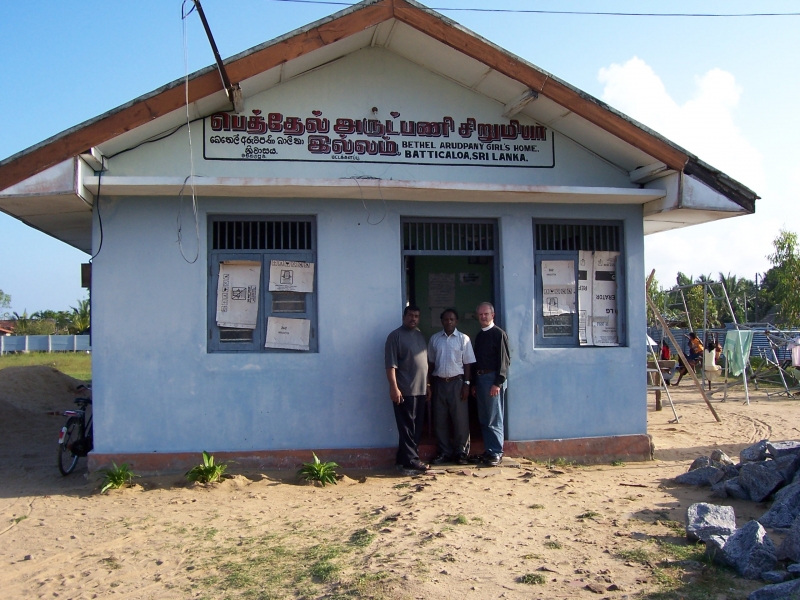
[wpgmza id=”8″]
- Church & school rebuild
- Girls’ home and orphanage-addition + daily Lutheran parochial education
- Boys’ Home and Orphanage-addition + daily Lutheran parochial education
- Continuing education tuition for pastors
- Guest professor/s at seminary twice each year
- Continued education for LCL pastors and seminary students
- Translation of Lutheran prayer book
- Translation of Lutheran Press series
A Report from Rev. Eric Stefanski
 From the first year of its existence, the parish I serve (Holy Trinity Evangelical-Lutheran Church, U.A.C., Harrison, Arkansas) has been blessed to support the work of The Confessional Lutheran Education Foundation with our Sunday School and Bible Class offerings, as well as other gifts. In the Fall of 2007, Holy Trinity began ‘loaning’ me to the CLEF, as well, so that I could teach the pastors and theological students of The Lutheran Church in Lanka (LCL), a church body that has been ravaged both by the decades-long war in Sri Lanka and by the 2004 tsunami (which not only left many parishioners dead or homeless, but also deprived them of their church body president and his skills as a translator of theological writings into the majority language of Sinhala.
From the first year of its existence, the parish I serve (Holy Trinity Evangelical-Lutheran Church, U.A.C., Harrison, Arkansas) has been blessed to support the work of The Confessional Lutheran Education Foundation with our Sunday School and Bible Class offerings, as well as other gifts. In the Fall of 2007, Holy Trinity began ‘loaning’ me to the CLEF, as well, so that I could teach the pastors and theological students of The Lutheran Church in Lanka (LCL), a church body that has been ravaged both by the decades-long war in Sri Lanka and by the 2004 tsunami (which not only left many parishioners dead or homeless, but also deprived them of their church body president and his skills as a translator of theological writings into the majority language of Sinhala.
In November of 2007, I was privileged to spend two weeks teaching Biblical Hermeneutics (how to understand the Bible rightly) to the pastors of The Lutheran Church in Lanka and to one theological student. The pastors demonstrated themselves to be serious students of the Bible already, but were in need of some of the objective principles to which Lutherans look to safeguard our preaching and teaching from the tendencies of our flesh to corrupt what God’s Word says. Distinguishing the various genres of literature in the Bible and how they affect our understanding, as well as recognizing that the principle scriptura scripturam interpretatur (Scripture interprets Scripture) not only requires a comprehensive study of the whole Bible, but also the distinction between clear and dark passages of Scripture (and how that returns us to our Confessions), was our foremost concern.
Working with a translator was a new experience for me, but the Lord provided us with a good one, one who as had to become so involved with what is taught that he has concluded that he, too, must be a Lutheran! This is a great testament to the power of God’s Word and its right confession: so often it occurs that when someone translates the Lutheran Confessions and sound Lutheran Theology, he ends up concluding that he must confess it, too. Thus, there is great reason to continue to support the work of the CLEF. Every time a translator is brought to confess the truth in this way, the door is open for more work to be done, as he has access to scholarly works that those less skilled in English would find impossible to approach, and he then becomes the conduit through which such scholarship may flow to the whole church body.
A highlight of my trip was the opportunity I had to visit three of the LCL parishes. We began withSt. Paul’s in Kandana, where the Rev. Susil Priyantha was the pastor. Pr. Priyantha had been raised as a Roman Catholic, became a Pentecostal pastor in his twenties, and then was confronted with the clear exposition of God’s Word when the Rev. Ranjith Fernando, first president of the LCL, translated the Lutheran Confessions into Sinhala. As Susil proclaimed God’s Word according to this true exposition of it, God blessed the church that met in his house so greatly that more and more of the house had to be dedicated to space for the Divine Service and for Sunday School classrooms. I found Pr. Priyantha to be an excellent student, one who wished to dig for every bit of the truth so that he could establish his parishioners in it, so that they would be armed against the false teachers that surround them. On 31 March 2008, as he was taking a parishioner home from a Bible class, his motorbike was struck by a large truck and both he and his passenger were killed. We know that the Lord will take care of his wife and children and the parish he leaves behind, but as the LCL has no ‘surplus pastors’, the remaining clergy will be stretched thin trying to take care of things—one more reason why it is so important to be in Sri Lanka training more men for God’s service.
I also had the privilege of going to ‘Sunday’ School (on Saturday!) at Lamb of God in Gampaha, where the Rev. Raja Fernando (current president of the LCL) is the pastor. Pr. Fernando has a church that is very active in Bible study, having classes of one sort or another every day of the week. His Sunday School begins at 9:00 and goes through lunch. Two hours are given to learning the Bible in Sinhala, followed by an hour of learning the Bible in English, then lunch, then an hour of computer studies. Assisted by theological student Anthony Ganeshan, Rev. Fernando seeks to give these children every possibility to learn God’s Word and to be able to go on to the better universities in Sri Lanka, so that the next generation of pastors (and, he hopes, Lutheran school teachers) may have educational opportunities that have been beyond the current generation. While I was there, the class reviewed several Bible stories through drama and song, both in Sinhala and in English. I then had the opportunity to visit with some of the adults of the parish. It was wonderful to hear how God was working in their area of Gampaha, where the church is settled in what used to be a 100% Buddhist neighborhood.
On Sunday, we headed south toKalutara North, where the Rev. Mervyn Fernando is the pastor of Our Saviour Lutheran Church, a small parish that used to be a large parish. Things were going very well for them until the tsunami hit on the day after Christmas in 2004. Many parishioners died and many were forced to relocate (in November of 2007, many of the tin houses near the ocean were just beginning to be rebuilt, because supplies have been unavailable). Instead of worshiping in their own building, as they had done before, the parish moves from house to house each week. While I was with them, we met at the house of Pr. Fernando’s son. When the Service began, several portions of it were done twice—once in Sinhala and once in English, so that their guest wouldn’t feel isolated. From the familiar liturgy to the ‘all Lutherans everywhere do it’ dinner after the Divine Service, they made sure that I felt ‘at home’, helping to ease the pain of missing my family and parish and making me wish that all of them were there in Sri Lanka with me at the same time. Even though public transportation problems that weekend (which was a major Buddhist festival) prevented several parishioners from attending, we were warmly received by this small, joyous parish and, as with the saints in Gampaha and Kandana, we look forward to seeing them again.
In spite of the great hardships they endure, the pastors of the Lutheran Church in Lanka seek in all things to be faithful to the Word of God, proclaiming it in line with the Confessions of Christ’s Church as found in the Christian Book of Concord of 1580. And these pastors, their families, and the families of their parishes are, indeed enduring hardship, both in the form of persecution from the non-Christian majority (even to the point of being attacked physically for their confession of the faith) and in the form of rampant poverty; they need money to carry out their work, and what seems like a small offering to us can be a life-saving and Gospel-furthering miracle to them.
Sri Lanka is, in a sense, a picture of this world as created perfect, yet fallen due to Man’s sin: it is a tsunami-ravaged, war-torn, poverty-stricken paradise. The scenes of disaster and constant military presence are what are etched on the minds of the people of Lanka; the secluded, serene, manicured beauty of one of the local inns where our classes are conducted is a far cry from their daily life…and, yet, that is true for us Americans, also. We are in the midst of beauty that we do not observe because our minds are cluttered by the ugliness of modern life—the beauty that is obscured by the havoc that our sin has wreaked upon what was once perfectly beautiful. In their poverty, they are especially mindful of this, and, thus, the Gospel of our Lord Jesus is such a treasure to them, often the only treasure they know.
It is a privilege, then, to be allowed to be the agent of God’s enriching His shepherds there, so that they may provide His riches to His flock. I give thanks to Him for the members of Holy Trinity for supporting me in this endeavor, and to all those who continue to support the CLEF in this ongoing effort. As I write, I am preparing to return to Sri Lanka, to go through Luther’s Heidelberg Theses and discuss his “Theology of the Cross,” as well as to cover some “Bible Difficulties” to help the pastors answer some of the current claims of the local Buddhists against Christianity. May this time and the gifts which you have given to the CLEF truly be used to His glory, to the good of His people, and to the spread of His Gospel of salvation
[nggallery id=9]

